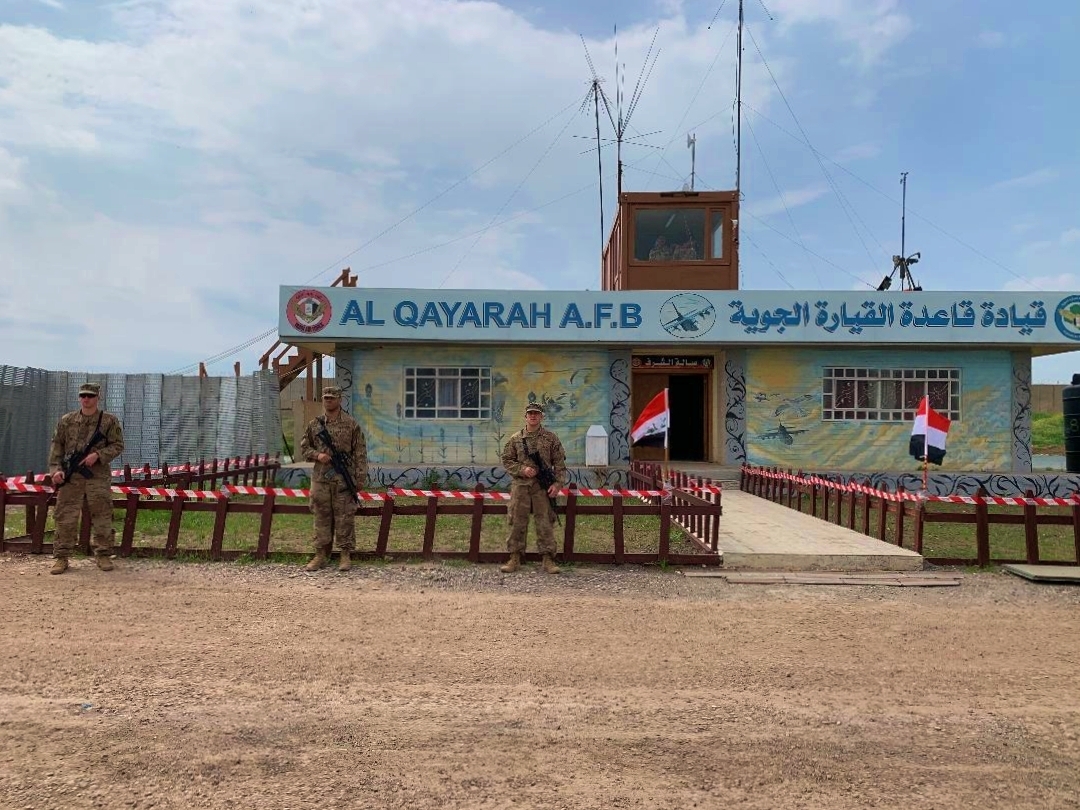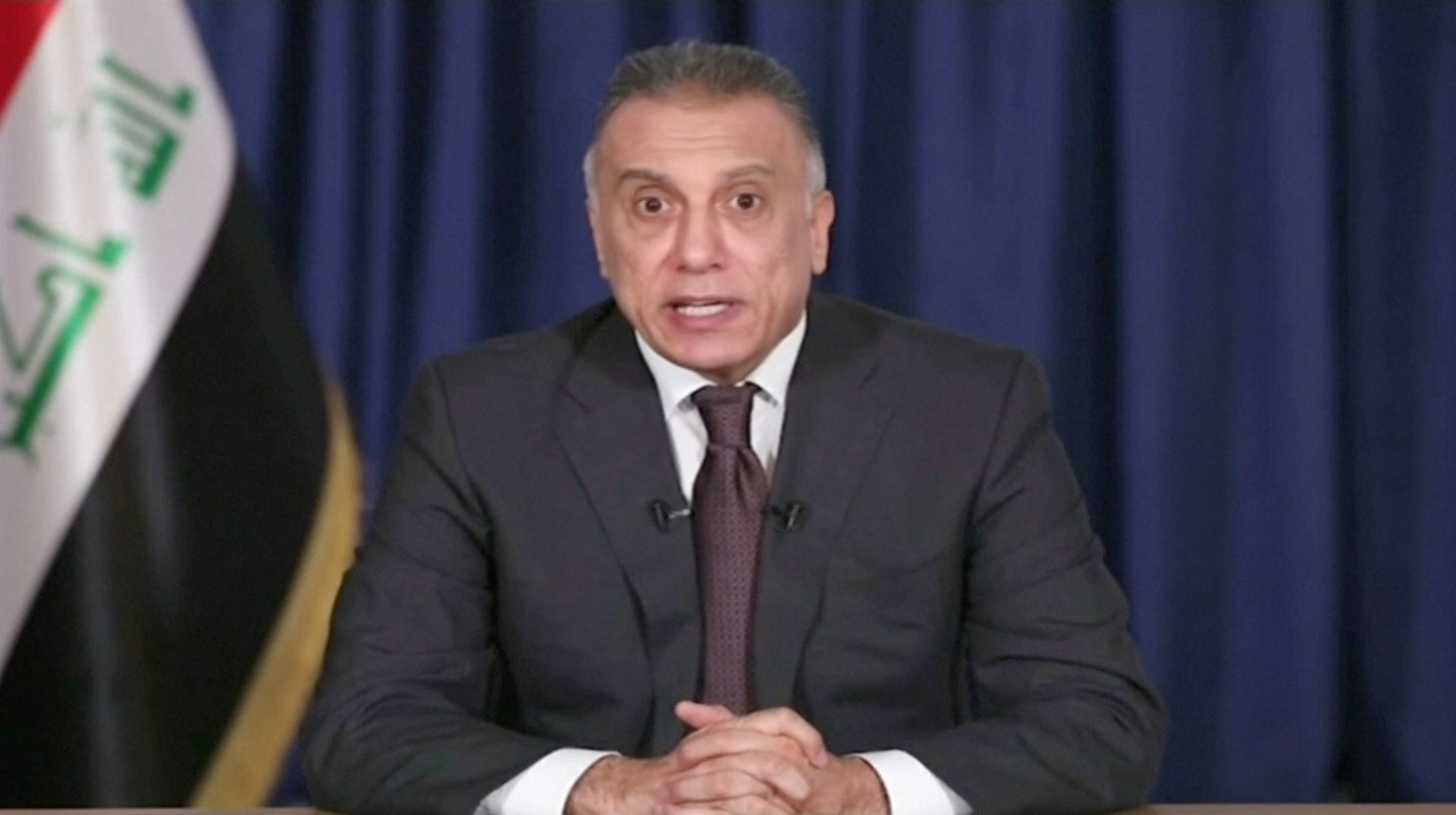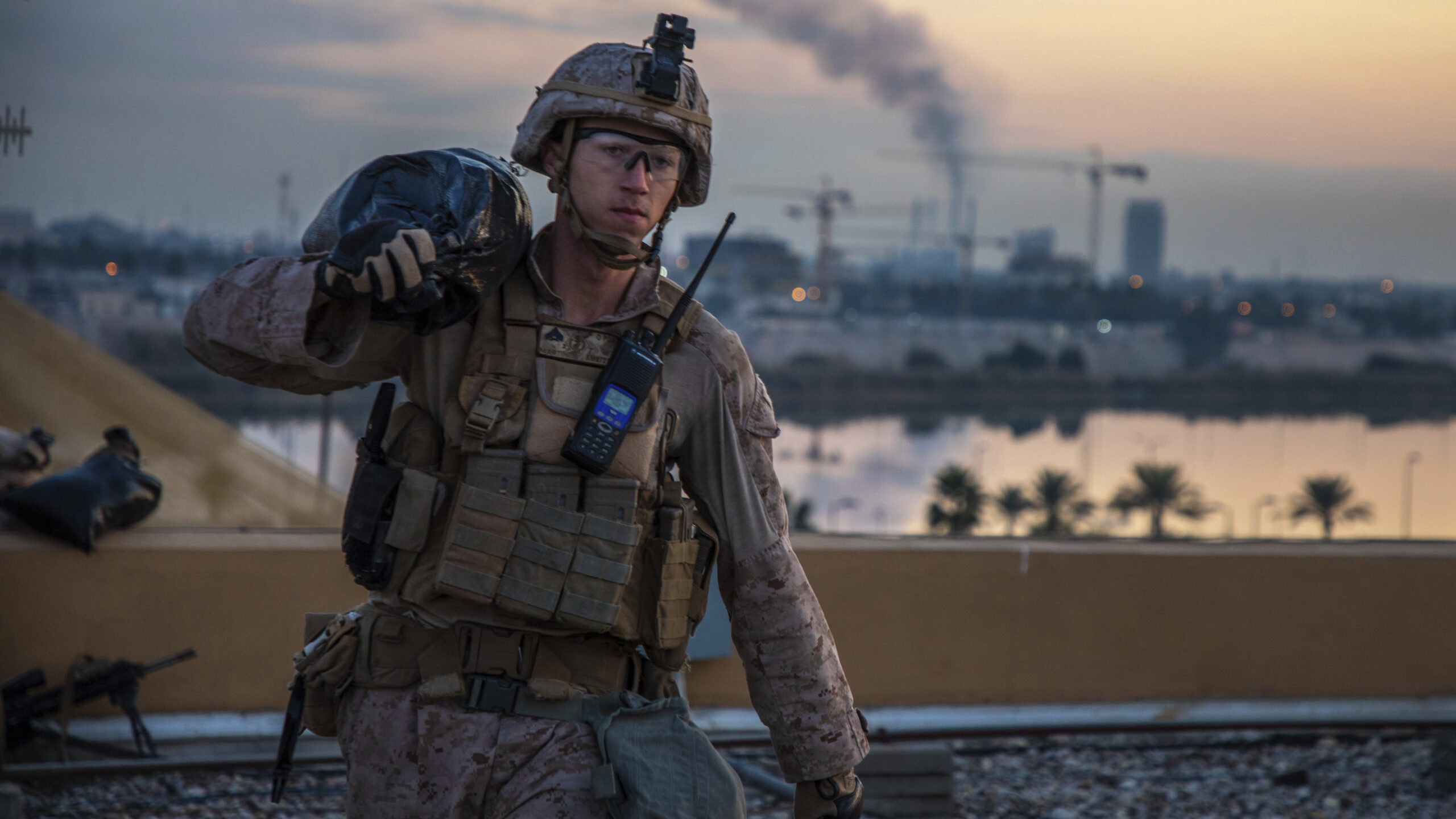Keep Your Enemies Closer: Iran and the U.S.-Iraq Strategic Dialogue
While the long-term objective of Tehran may well be to expel all great powers from the Middle East, in the short term, Iran benefits from the U.S. presence in Iraq.

As Washington and Baghdad prepare for a strategic dialogue to discuss the future presence of U.S. forces in Iraq and other issues, Tehran is sending mixed signals. Iran’s Foreign Ministry spokesman on April 1 officially demanded the withdrawal of the U.S. military from Iraq in compliance with the Iraqi Parliament’s January 5 vote, and Supreme Leader Ayatollah Ali Khamenei on May 17 predicted, “Americans will not remain in Syria or Iraq, and doubtlessly will be expelled.” Yet, prominent officers of the Islamic Revolutionary Guard Corps Quds Force appear to believe a continued U.S. military presence may be advantageous. What is the rationale behind Tehran’s mixed signals?
While the long-term objective of Tehran may well be to expel all great powers from the Middle East, in the short term, the Islamic Republic benefits from the U.S. presence in Iraq. Additionally, the U.S. military presence in Iraq provides the Quds Force and its Iraqi allies and proxies with rhetorical arguments and potential targets, both of which can be useful at times of heightened tensions between Washington and Tehran.
On April 13, before the parliamentary vote of confidence for Iraqi Prime Minister Mustafa al-Kadhimi, Hassan Danaeifar, Quds Force officer and former ambassador to Baghdad, said in a carefully worded interview with Tasnim News Agency that: “The agreement did not help the Americans achieve their objectives, and is seriously challenged by the Iraqi public …” Danaeifar also claimed the United States is trying to “reduce the military dimension” of the strategic dialogue and will accentuate economic and political dimensions instead. Commenting on a possible U.S. military withdrawal, Danaeifar said it would happen, but “it is unwise to predict the exact time” of the withdrawal. He added, “The Americans will leave Iraq in less than two years.” It is possible that Danaeifar made this prediction to signal Tehran’s acquiescence to a continued U.S. military presence for up to two years.
On April 18, Hassan Kazemi Qomi, another Quds Force officer and former ambassador to Baghdad, cautiously talked about the possibility of a benign role for the United States in Iraq saying: “There will be no strategic dialogue, unless the Americans pursue a benign presence in Iraq.” Such a benign presence, however, is only possible if the United States abandons its “illegitimate objectives,” such as disbanding the Popular Mobilization Forces. Qomi concluded that the United States’ “aggressive nature” will not permit it to pursue a benign presence in Iraq and even added a veiled threat: “If the Americans ignore the law of expelling their troops from Iraq, the Iraqis may use any means to expel them from their country.” Qomi’s equivocal statements probably conveyed a message to Washington: As long as the United States does not actively pursue disbandment of the PMF, which is a redline for Tehran, the Quds Force will not object to the continued U.S. military presence in Iraq for at least some period of time.
Beyond the discussion about the length of the U.S. military presence in Iraq and the PMF, Iraj Masjedi, current ambassador to Baghdad and former Quds Force officer, is working to protect and expand Iran’s electricity exports to Iraq. On May 7, the United States announced a 120-day extension to Iraq’s waiver on energy imports from Iran. The constant threat of reimposing sanctions serves the purpose of persuading the government in Baghdad to diversify its electricity sources. Masjedi acknowledges, “The United States has subjected Iraq to extreme pressure in an attempt to deprive Iraq of energy resources it is importing from Iran,” but he believes that effort is “to no avail.” Masjedi does not say so, but if the United States had no military presence in Iraq, it may have been less sensitive to the difficulties of the Iraqi government and would have perhaps imposed sanctions on Iraq.
Another potential subject in the strategic dialogue is the flow of U.S. dollars to Iran from Iraq. The Islamic Republic has long sought to use Iraq as a means of sanctions evasion and trade, both formal and clandestine, including smuggling oil and oil products. However, under the “maximum pressure” campaign of U.S. President Donald J. Trump, the Iraqi market has become vital to Tehran. As a responsible ally and partner of Iraq, and with an eye to the U.S. military’s continued fight against terrorist organizations, the United States has gone to great lengths to stabilize the central government in Baghdad, even at the expense of other policy objectives such as the maximum pressure campaign against Iran. Had it not been for its military presence in Iraq, the United States would probably have taken stronger measures to reduce the flow of dollars to the Iranian economy.
Finally, the Quds Force and its allies are running out of military targets. With oil markets crashing, the IRGC must look for other targets than international shipping to get any attention from Washington. It is therefore hardly surprising that the Islamic Republic’s allies and proxies in Iraq are now refocusing on the U.S. military in Iraq. Tehran may have reached the conclusion that it is wiser to keep the United States closer, within reach of the Quds Force.
The views represented herein are the author's or speaker's own and do not necessarily reflect the views of AGSI, its staff, or its board of directors.




















